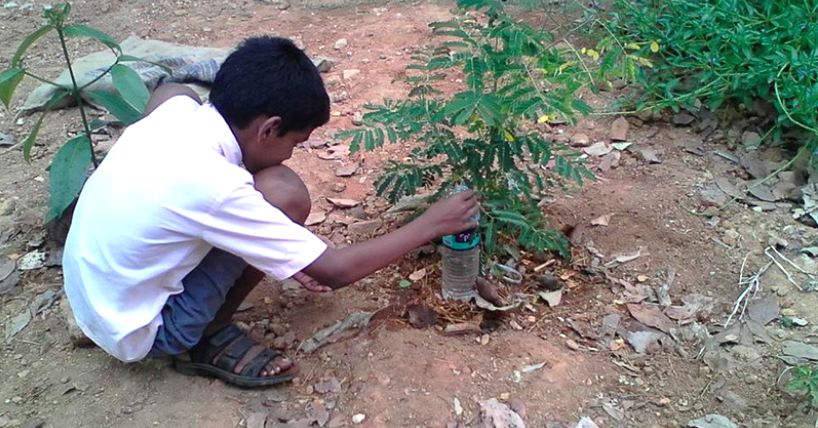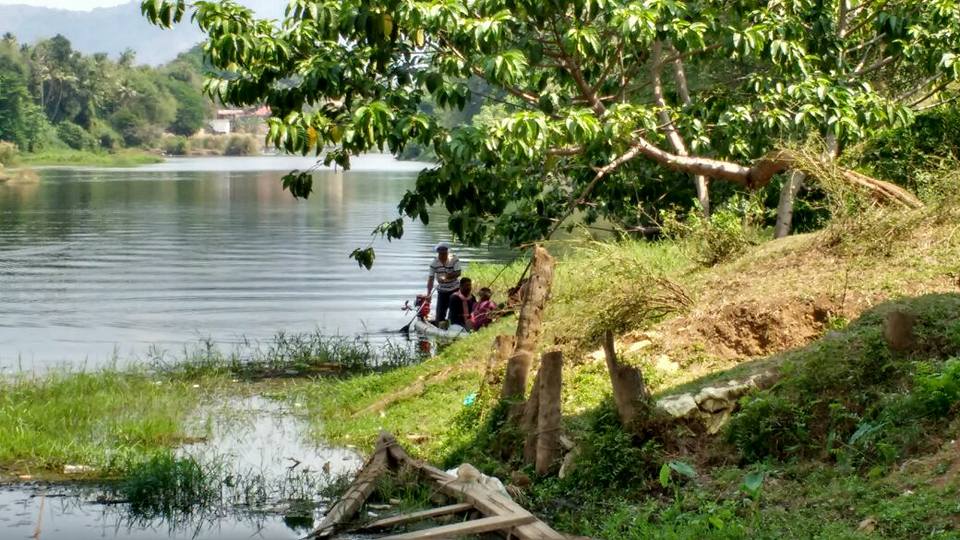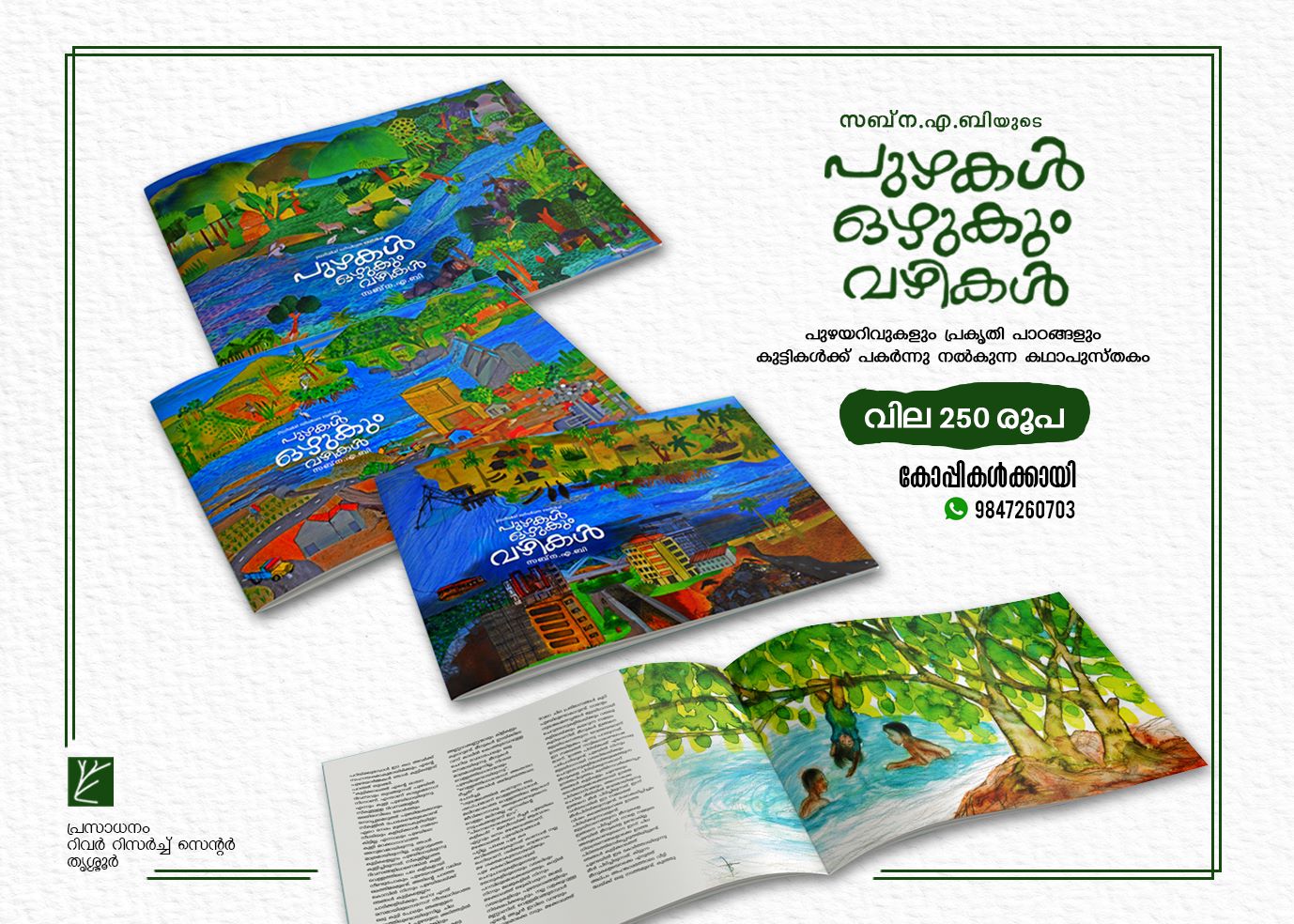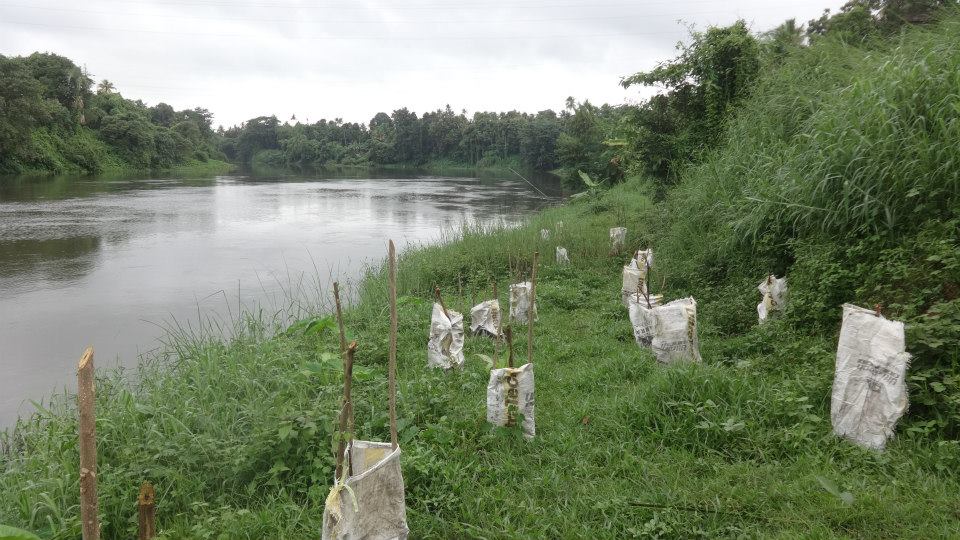Once Choked by Pollution, Kerala’s Chalakudy River Has a New ‘Little’ Band of Saviours
The Schools for River project was flagged off for the obvious lack of relevant information pertaining to rivers and complex river basin ecosystems in school curriculum.

Rivers are among the many natural sources that have been the lifelines of civilisations throughout history and helped them thrive. However, in recent times, they have sadly become hapless victims of human greed and materialism and are slowly perishing away due to the blatant disregard and apathy for the environment, that is common in the present generation.
More than just being the perennial sources of freshwater, rivers play a significant role in maintaining and replenishing the groundwater table besides ensuring that the fertility of the soil is intact.
When a river is polluted or trashed indiscriminately, the consequences do not appear instantly but transpire over a long period of time, which is only detrimental for humanity and every other form of life surviving within its ambit.
Individual crusaders alongside non-profit organisations have time and again fought for these water bodies and have even given their lives to resuscitate them back to life.

However, the situation is graver than we could have ever imagined and it is vital that the growing generation comprehends what is at stake, as they are the ones who will have to make do with whatever resources are left for their survival.
Flowing through the districts of Palakkad, Thrissur and Ernakulam, the Chalakudy Puzha acquires its namesake from the riverine town of Chalakudy in Kerala, which is the primary settlement along the course of the river. However, the story of Chalakudy river is like any other abused and overmined river across the country.
In a bid to save their only lifeline, a non-profit organisation has been relentlessly working towards conserving the river for many years now and what makes its intervention especially crucial to the sustenance of the movement, is its belief in the conscious conditioning of children and the youth towards conserving the environment for a better future.
River Research Centre was founded in the early 2000s by late environmentalist Latha Anantha in the Thrissur district. Latha had dedicated a significant portion of her life educating children about rivers and their importance, besides fighting a long-waged war against the construction of dams and dislocation of people settled along the peripheries of the Chalakudy river.
Despite the demise of its guiding light, the NGO has been continuing its river conservation and awareness drives, with a particular focus on schools in the region.
The Schools for River project was flagged off for this very purpose and more prominently, for the obvious lack of relevant information pertaining to rivers and complex river basin ecosystems.

“The chapters on ‘rivers’ in our textbooks and study material in schools are sadly incomplete and one dimensional. Everything stops with the idea of building dams across rivers and using them as a source of energy generation,” said environmentalist and coordinator of the Schools for River programme, Zabna AB to The New Indian Express.
To fill this gap, Zabna spent two and half years in researching extensively about rivers and its system to make the subject comprehensive for kids and finally came up with a series of three vibrantly illustrated booklets titled ‘Puzhakal Ozhukum Vazhikal,’ which tell the story of a river through all of its phases—upstream, middle and downstream.
Involving schoolchildren in conservational activities like riparian planting, which invariably lead to overall ecological conservation, the Schools for River project conducts workshops and awareness sessions for kids to help them understand the importance of free-flowing rivers and the utter necessity to safeguard them.
The students are also taken on guided river walks and field trips to ecologically sensitive areas with scientists, researchers and environmentalists.

The need for field trips came from the realisation during the workshops when the organisers found that the growing generation had a very different outlook on rivers portrayed in their drawings and sketches, which disturbingly comprised of morbid elements like factory effluents, garbage and dead fishes.
Now that summer is here; the centre would be intensifying its activities in full force with camps and interactive sessions. Besides learning about river conservation, the kids are also taught about riparian flora and fauna, and how dams are detrimental for long-term sustenance of rivers.
You may also like: This May, Kottayam Will Join Hands & Hearts to Revive Its Precious ‘Lifelines’!
“It is not only serious learning that happens during the camps. Students get involved in group activities and create art and craft based on their learning. They also have fun in the rivers. All these widen their perspective about a river and the need for its conservation,” added the environmentalist.
Sadly, the major barrier in their crusade is the lack of support from schools and even parents, who more often than not showcase lackadaisical approach towards conservation activities. However, Zabna hopes that the organisation’s perseverance and dedication would someday lead the authorities considering the cause of river conservation more seriously.
(Edited by Gayatri Mishra)
Like this story? Or have something to share?
Write to us: [email protected]
Connect with us on Facebook and Twitter.
NEW: Click here to get positive news on WhatsApp!
If you found our stories insightful, informative, or even just enjoyable, we invite you to consider making a voluntary payment to support the work we do at The Better India. Your contribution helps us continue producing quality content that educates, inspires, and drives positive change.
Choose one of the payment options below for your contribution-
By paying for the stories you value, you directly contribute to sustaining our efforts focused on making a difference in the world. Together, let’s ensure that impactful stories continue to be told and shared, enriching lives and communities alike.
Thank you for your support. Here are some frequently asked questions you might find helpful to know why you are contributing?


This story made me
-
97
-
121
-
89
-
167













